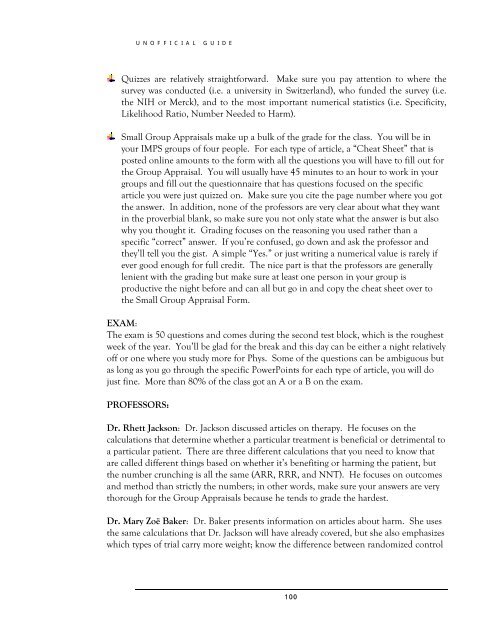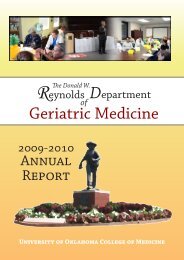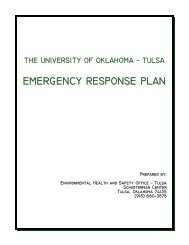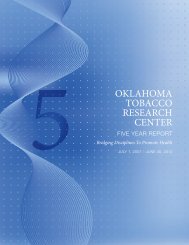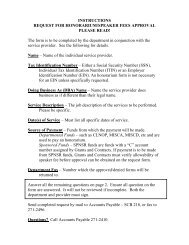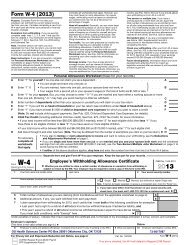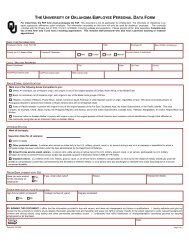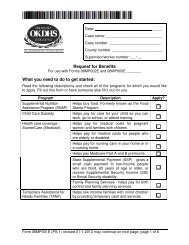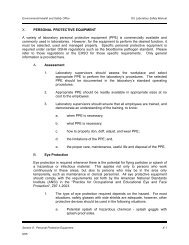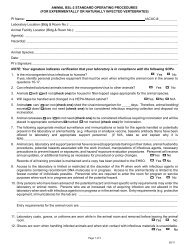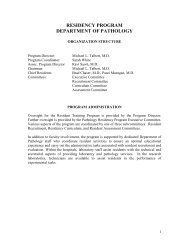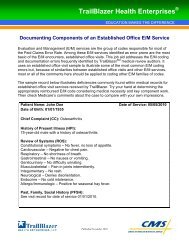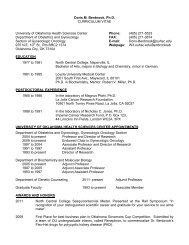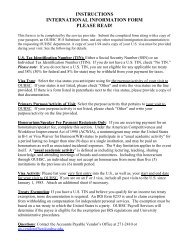The Unofficial Guide to First Year - University of Oklahoma Health ...
The Unofficial Guide to First Year - University of Oklahoma Health ...
The Unofficial Guide to First Year - University of Oklahoma Health ...
You also want an ePaper? Increase the reach of your titles
YUMPU automatically turns print PDFs into web optimized ePapers that Google loves.
UNOFFICIAL GUIDE<br />
Quizzes are relatively straightforward. Make sure you pay attention <strong>to</strong> where the<br />
survey was conducted (i.e. a university in Switzerland), who funded the survey (i.e.<br />
the NIH or Merck), and <strong>to</strong> the most important numerical statistics (i.e. Specificity,<br />
Likelihood Ratio, Number Needed <strong>to</strong> Harm).<br />
Small Group Appraisals make up a bulk <strong>of</strong> the grade for the class. You will be in<br />
your IMPS groups <strong>of</strong> four people. For each type <strong>of</strong> article, a “Cheat Sheet” that is<br />
posted online amounts <strong>to</strong> the form with all the questions you will have <strong>to</strong> fill out for<br />
the Group Appraisal. You will usually have 45 minutes <strong>to</strong> an hour <strong>to</strong> work in your<br />
groups and fill out the questionnaire that has questions focused on the specific<br />
article you were just quizzed on. Make sure you cite the page number where you got<br />
the answer. In addition, none <strong>of</strong> the pr<strong>of</strong>essors are very clear about what they want<br />
in the proverbial blank, so make sure you not only state what the answer is but also<br />
why you thought it. Grading focuses on the reasoning you used rather than a<br />
specific “correct” answer. If you’re confused, go down and ask the pr<strong>of</strong>essor and<br />
they’ll tell you the gist. A simple “Yes.” or just writing a numerical value is rarely if<br />
ever good enough for full credit. <strong>The</strong> nice part is that the pr<strong>of</strong>essors are generally<br />
lenient with the grading but make sure at least one person in your group is<br />
productive the night before and can all but go in and copy the cheat sheet over <strong>to</strong><br />
the Small Group Appraisal Form.<br />
EXAM:<br />
<strong>The</strong> exam is 50 questions and comes during the second test block, which is the roughest<br />
week <strong>of</strong> the year. You’ll be glad for the break and this day can be either a night relatively<br />
<strong>of</strong>f or one where you study more for Phys. Some <strong>of</strong> the questions can be ambiguous but<br />
as long as you go through the specific PowerPoints for each type <strong>of</strong> article, you will do<br />
just fine. More than 80% <strong>of</strong> the class got an A or a B on the exam.<br />
PROFESSORS:<br />
Dr. Rhett Jackson: Dr. Jackson discussed articles on therapy. He focuses on the<br />
calculations that determine whether a particular treatment is beneficial or detrimental <strong>to</strong><br />
a particular patient. <strong>The</strong>re are three different calculations that you need <strong>to</strong> know that<br />
are called different things based on whether it’s benefiting or harming the patient, but<br />
the number crunching is all the same (ARR, RRR, and NNT). He focuses on outcomes<br />
and method than strictly the numbers; in other words, make sure your answers are very<br />
thorough for the Group Appraisals because he tends <strong>to</strong> grade the hardest.<br />
Dr. Mary Zoë Baker: Dr. Baker presents information on articles about harm. She uses<br />
the same calculations that Dr. Jackson will have already covered, but she also emphasizes<br />
which types <strong>of</strong> trial carry more weight; know the difference between randomized control<br />
100


